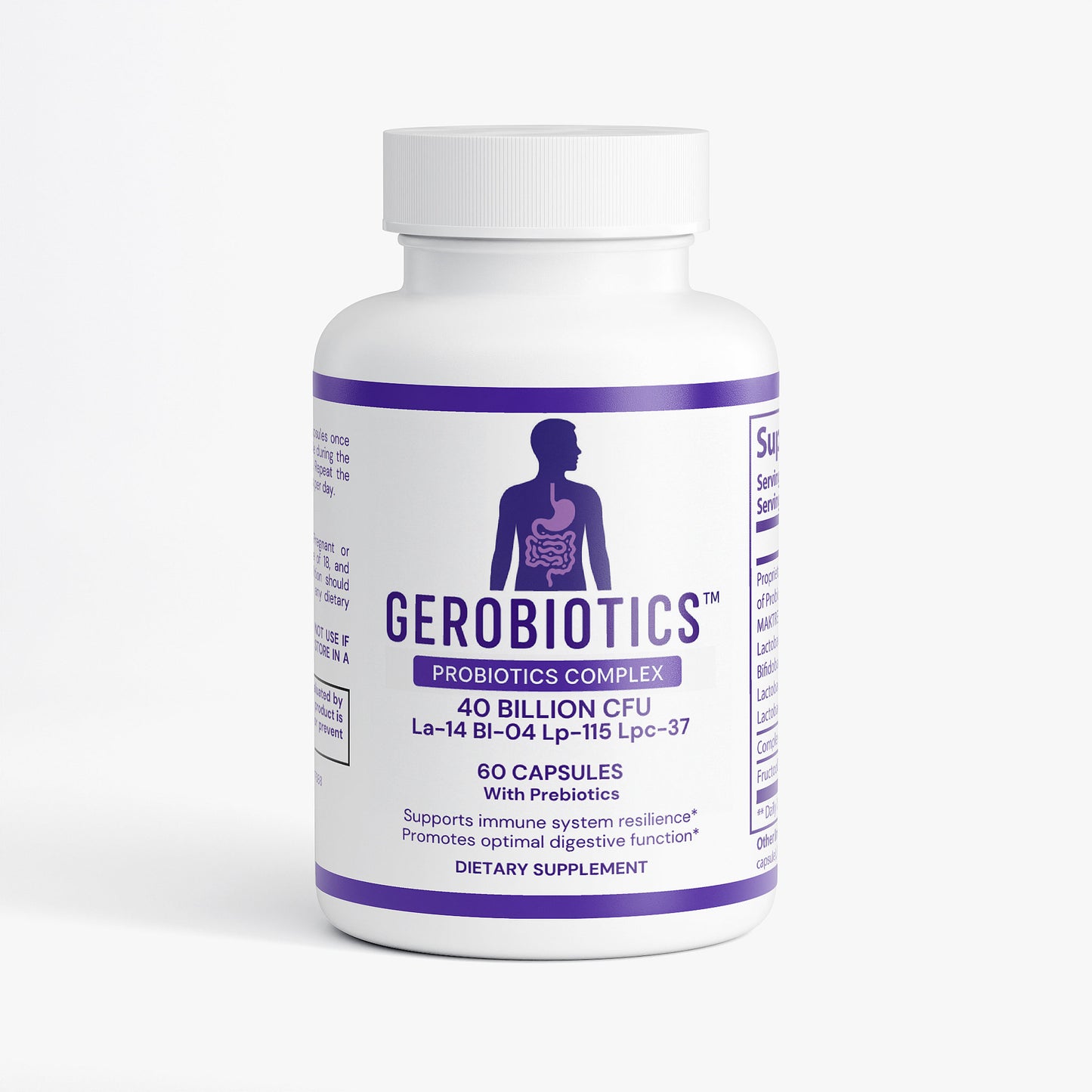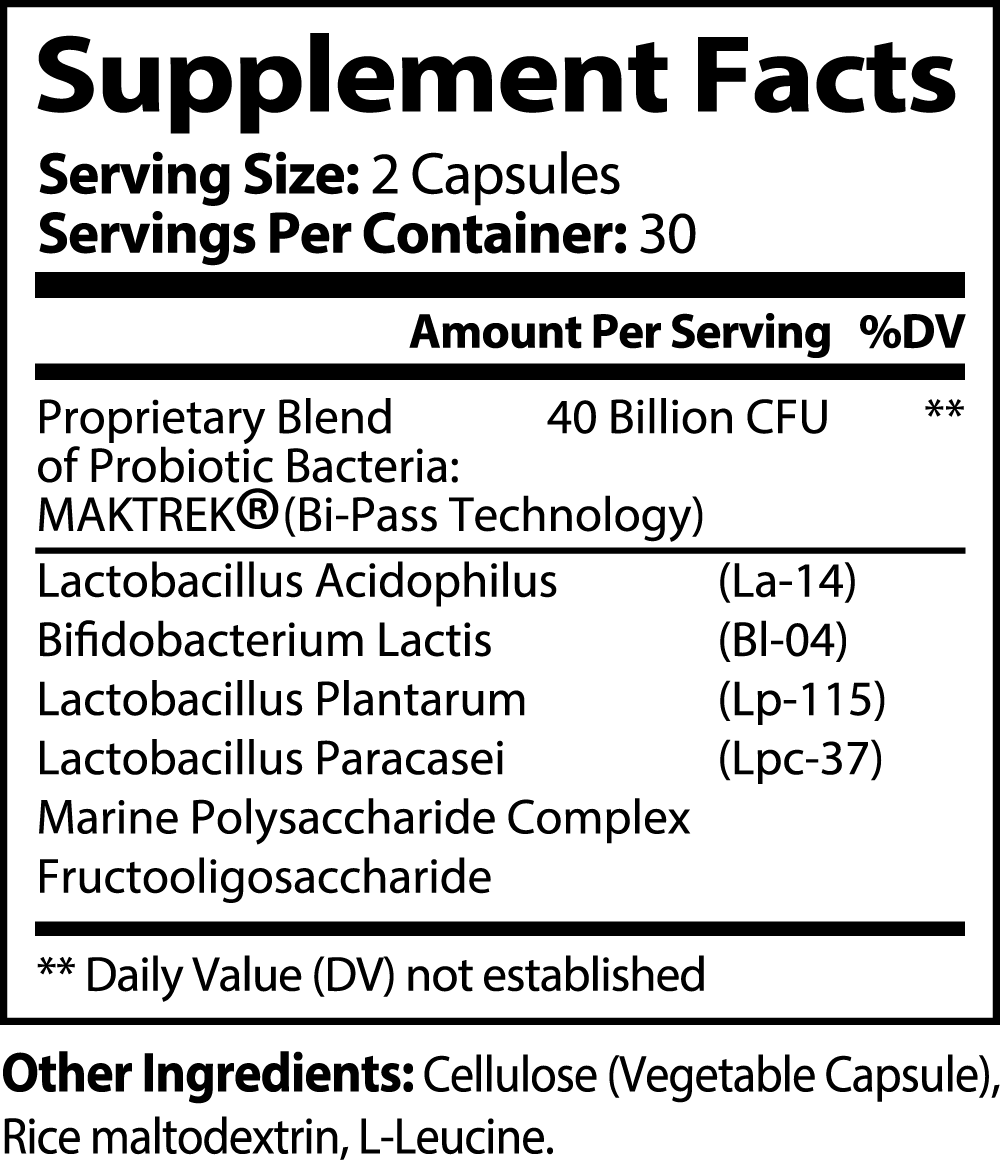The gut microbiome, the trillions of microorganisms in your digestive system, plays an important role in digestion, nutrient absorption, and overall wellness. Researchers are exploring how gut balance may influence many aspects of health and well-being.
The Role of the Gut Microbiome in Wellness
The gut microbiome is made up of a diverse community of bacteria, viruses, and fungi that live in the digestive system. These microorganisms contribute to digestion, nutrient absorption, and interact closely with the body’s natural systems.
Key Functions:
Immune Interaction: The gut microbiome is studied for its potential role in supporting balanced immune responses.
Barrier Support: Beneficial bacteria are believed to help maintain the health of the gut lining.
Metabolite Production: Certain gut bacteria produce compounds, such as short-chain fatty acids (SCFAs), that are being researched for their role in digestive and overall wellness.
Scientific Insights into Gut Health
Microbial Diversity and Wellness
Research suggests that greater diversity in the gut microbiome may be associated with overall wellness. Ongoing studies continue to explore how a wide range of gut microbes may play a role in supporting health.
Probiotic Strains and Digestive Balance
Specific probiotic strains (e.g., Bifidobacterium and Lactobacillus) have been studied for their potential to support gut balance and overall wellness. Research explores how certain strains may interact with the immune system; findings vary by strain and context.
Prebiotics and Fiber in Gut Balance
Prebiotics are non-digestible fibers that feed beneficial gut bacteria and may help support a balanced gut environment. Foods rich in prebiotics, such as onions, garlic, and whole grains, can support the growth of beneficial bacteria. Dietary fibers can contribute to the production of short-chain fatty acids (SCFAs), which are being researched for their role in digestive and overall wellness.
Practical Steps to Support Gut Health
Dietary Changes:
Include Probiotics: Consuming probiotic-rich foods such as yogurt, kefir, and fermented vegetables can introduce beneficial bacteria into your gut. These foods may help support a balanced microbiome.
Boost Prebiotics: Foods high in prebiotics, including asparagus, leeks, bananas, and oats, can help support the growth of beneficial bacteria. Prebiotics act as nourishment for probiotics and may contribute to a healthy gut environment.
Fiber-Rich Diet: A diet rich in diverse fibers may support microbial diversity and SCFA production. Incorporating a variety of fruits, vegetables, legumes, and whole grains is encouraged. Research institutions, such as the National Institute on Aging, highlight the importance of dietary fibers in maintaining digestive wellness.
Lifestyle Adjustments:
Regular Exercise: Physical activity is associated with positive effects on gut microbiota composition and function. Exercise may help support microbial diversity and the growth of beneficial bacteria.
Stress Management: Stress may influence gut balance. Techniques such as meditation, deep breathing, and yoga can be helpful for managing stress levels, which in turn may support overall gut health.
Adequate Sleep: Quality sleep is important for overall well-being, and research suggests it may also be linked with gut balance. Ensuring sufficient restorative rest can help support general health, including digestive wellness.
Moving Forward with Gut Health
By prioritizing your gut health, you can take steps that may support balance in your digestive system. Incorporating probiotics, prebiotics, and fiber into your diet, along with positive lifestyle changes, can encourage a thriving gut environment. This approach supports overall wellness and healthy living.
Medical Disclaimer: The information provided in this article is for informational purposes only and is not intended as a substitute for advice from your physician or other healthcare professional. Consult with a healthcare professional before starting any diet, exercise, or supplementation program, or if you have or suspect you might have a health problem.





